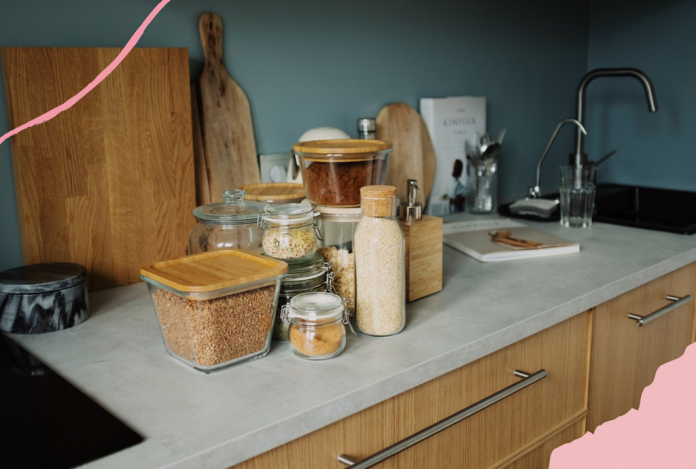The kitchen, indisputably the heart of every home, is also one of the most energy-intensive rooms. But with strategic planning and a few changes to your daily habits, you can reduce your kitchen’s energy use significantly. Here are our top 12 energy-saving tips for your kitchen.
Use Energy-Efficient Versions Of Kitchen Appliances
Certain kitchen appliances are especially notorious for their substantial electricity usage, with refrigerators and freezers leading the pack. These types of appliances are operational around the clock, making them significant contributors to a household’s energy consumption.
Cooking appliances such as electric ovens and cooktops, particularly older models, are also infamously energy-hungry. Electric ovens use considerable power, especially during the heating process, and old-fashioned electric hobs are less energy-efficient compared to their gas or induction counterparts.
Smaller kitchen appliances, while seemingly innocuous, can also rack up energy usage. Dishwashers, in particular, though more water-efficient than hand washing, consume a lot of electricity, especially if used frequently or with the heat-dry setting. Microwaves, toasters, and toaster ovens, despite their size and convenience, also have a significant energy impact, especially when used frequently or for extended periods.
Electric kettles can also be surprisingly energy-demanding, particularly when boiling more water than necessary. By understanding these appliances’ energy consumption, homeowners can make conscious decisions to use them more efficiently or upgrade to more energy-efficient models.
When purchasing new appliances, look for those with a higher energy label (A represents the most energy efficient, G the least). These appliances may be more expensive upfront, but they will save you money on your energy bills later down the line.
If you’re unsure which models will suit your kitchen, it can be worthwhile to speak with a professional kitchen fitter. They’ll take the time to assess your layout, power supply and ventilation, helping to ensure that any new appliances operate safely and efficiently.
They will also break down energy labels in simple terms and give realistic comparisons of running costs, making it easier to see which options will save you money over time, rather than focusing only on the purchase price. With their recommendations on practical, appropriately sized appliances, you’ll be better equipped to balance performance with energy efficiency, making your kitchen fitting more economical and sustainable in the long run.
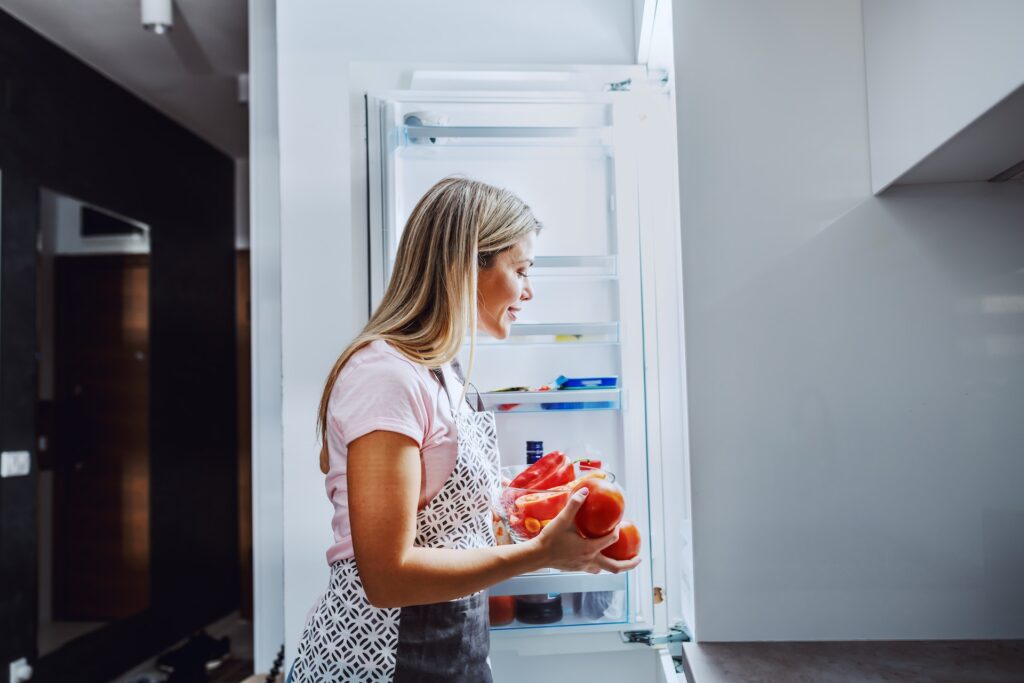
Batch Cook & Plan Meals Strategically
Embracing the art of batch cooking not only saves precious time during busy weekdays but significantly reduces your kitchen’s energy consumption. By preparing multiple meals simultaneously, you’re maximising your oven’s efficiency whilst it’s already heated. Consider dedicating a weekend afternoon to cooking several dishes that can be portioned and frozen for later use. This approach means you’ll use your energy-intensive appliances less frequently throughout the week.
Additionally, strategic meal planning can further enhance energy efficiency. Plan meals that require similar cooking temperatures back-to-back, allowing you to make the most of a preheated oven. For instance, if you’re baking a lasagne, consider roasting vegetables or baking desserts straight afterwards. Similarly, when using the hob, try to prepare components for multiple meals at once.
This thoughtful approach to cooking not only reduces your energy bills but also minimises food waste, as ingredients are purchased and used with purpose. The savings might seem modest day-to-day, but over months and years, batch cooking and strategic meal planning can contribute substantially to a more energy-efficient kitchen.
Pay Particular Attention To Your Fridge and Freezer
Ensure your refrigerator and freezer temperatures are set correctly; the ideal temperature is between 3-5°C for the fridge and -15 to -18°C for the freezer. Not only will this mean your most pesky appliances are running as efficiently as possible, but you’ll be less likely to be ruining ingredients, helping you reduce your kitchen’s food waste.
Make sure, too, to defrost your freezer regularly to keep it running efficiently.
Read: 5 IDEAL tips for storing meat safely
Choose Induction Cooking
Induction hobs not only heat up twice as fast as gas stoves, but they also cool down quickly, reducing the risk of both burns and wasted energy. Some of the best (and most affordable) currently on the market include:
- SIA IND01BL: A single zone induction hob that is handy and practical for small kitchens. It costs approximately £60-£70.
- Cooks Professional Portable Induction Hob: A compact and portable option with 2000W power. It is priced around £40-£50.
- Russel Hobbs RH60IH401B: A built-in black glass model with four heating zones. Price is estimated to be around £160-£180.
- Bosch PUE611BF1B Induction Hob: Four cooking zones model with touch control. Bosch is an ever reliable domestic brand and this model can be found for approximately £300-£340.
- AEG IKB64301FB: A sleek, user-friendly hob offering four zones and priced at around £350- £400.
Use The Right Size Pots & Pans
Using a pot or pan that isn’t the right size for your burner can waste a lot of heat. It’s also important to use pots and pans with flat bottoms for even heat distribution, and to use the correct size of pot for the burner. A pot that is too small for the burner can waste as much as 40% of the heat produced.
But that’s not all; it’s also wise to always cover pots and pans to avoid energy escaping and to reduce cooking times, and turn the heat off a few minutes before your food is fully cooked – your cookware will retain the heat and continue to cook the food without using any energy.
In the name of conserving energy in the kitchen, it’s also sensible to choose your cookware wisely; copper-bottomed pans heat up faster than regular pans.
Be Smart About Your Oven
If you have a convection oven, use it. The fan circulates the heat, allowing food to cook 25% more quickly than in a conventional oven. Also, resist the temptation to frequently open the oven door, as this can cause a significant amount of heat to escape.
Should you be a household that loves a low and slow braise on a regular basis, then consider using a pressure cooker instead of your oven, which drastically reduces the cooking time and, in turn, your energy usage.
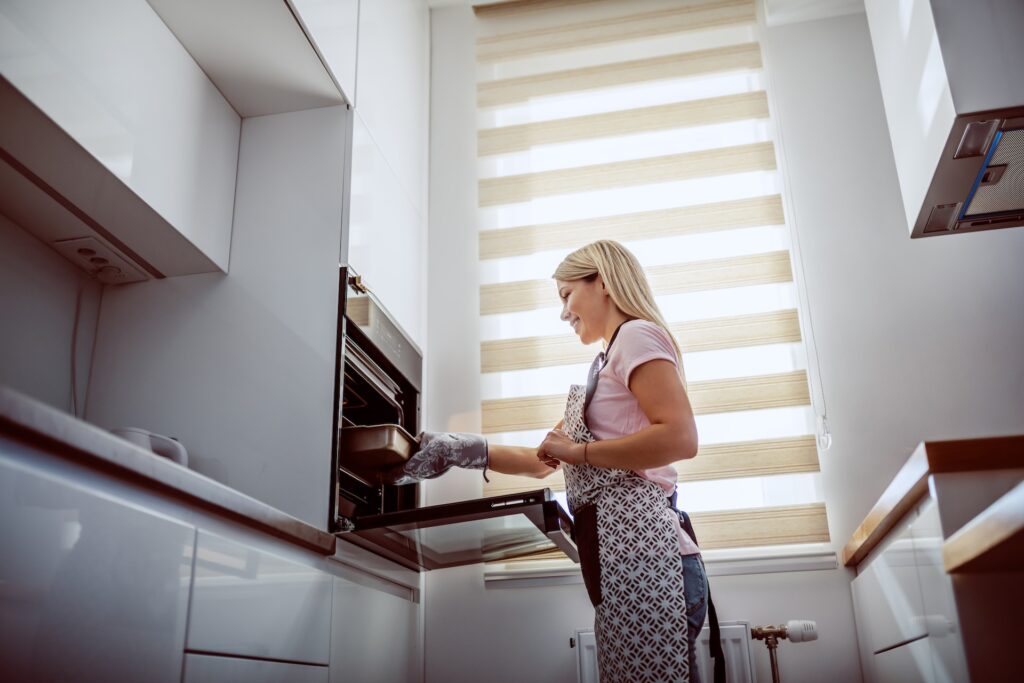
More Conscientious Water Usage
Of course, it’s not only electricity and gas use in the kitchen that you should be keeping an eye on. Your water wastage matters, too. Here are several ways you can be more conscientious about your kitchen water use:
- Catch That Tap Water: While waiting for your water to heat up, collect the running water and use it to water your plants or clean your vegetables.
- Use a Bowl to Wash Fruits and Vegetables: Instead of running tap water, fill a bowl with water and rinse your fruits and vegetables in it.
- Minimise Water Used in Cooking: Try to use the minimum amount of water required when boiling or cooking food. This can also help to preserve the nutrients in the food.
- Keep Drinking Water in the Fridge: Rather than letting the tap run to cool water for drinking, fill a pitcher or bottle and keep it in the fridge.
- Compost: Instead of using a garbage disposal, which requires water to operate, compost your organic waste.
- Fix Leaks: Even a slow drip can waste a surprisingly large amount of water over time.
- Rinse Dishes Efficiently: If you don’t have a dishwasher, use a washing basin to soak and wash dishes rather than letting the tap run.
- Limit Rinse Water: If you need to rinse off soap from dishes, do so in batches to limit the amount of water running from the tap.
- Instead of boiling water each time you need it, boil a larger quantity once and keep it in a thermos. This will save both energy and time.
Use A Microwave Or Toaster Oven For Small Meals
Microwaves and toaster ovens use less energy than a full-sized oven. They’re especially efficient for reheating leftovers and preparing small meals. Air fryers are always considered to be more economical in terms of their energy use.
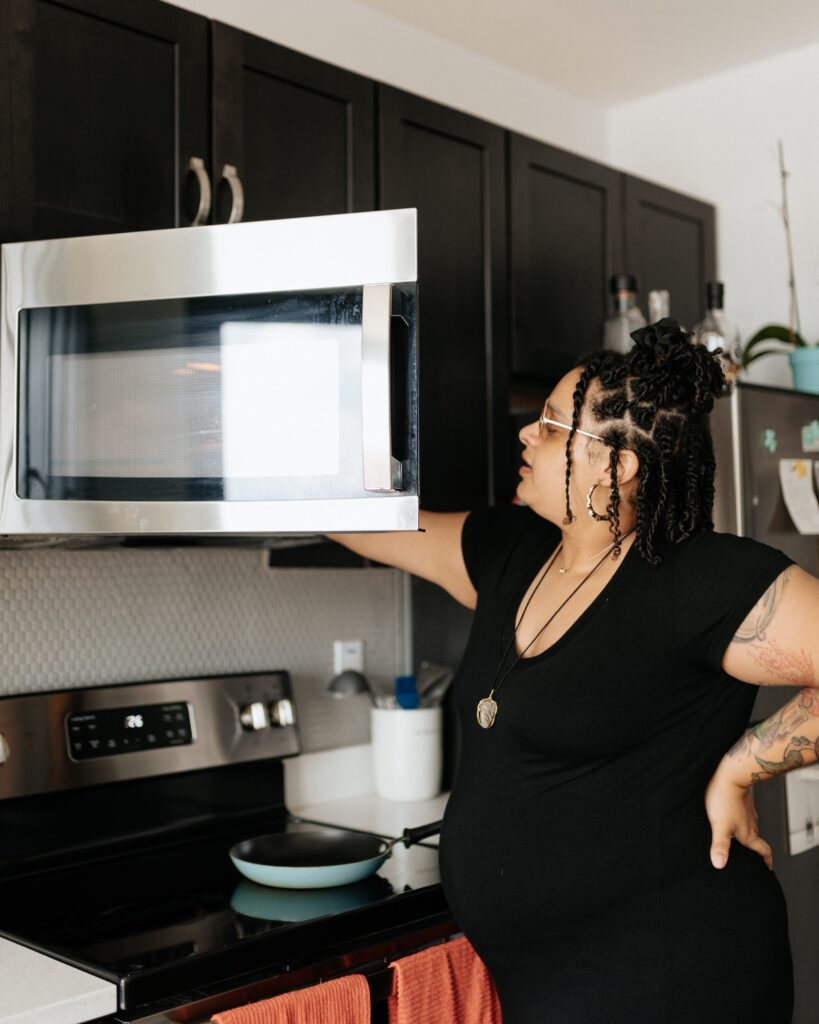
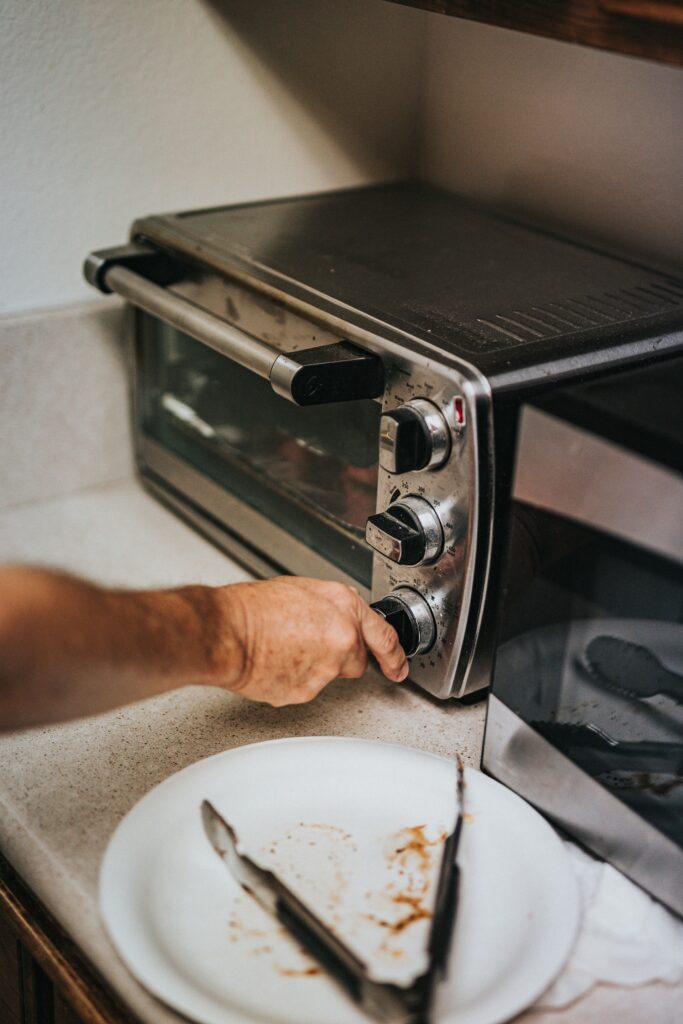
Keep Up With Maintenance
Properly maintaining your kitchen appliances can lead to substantial savings on your energy bill. Clean refrigerator coils, replace outdated oven seals, and regularly de-lime your dishwasher. Check out our handy guide on kitchen maintenance for beginners for some top tips on keeping everything running smoothly in the so-called heart of the home.
Use The Dishwasher Efficiently
There are several ways to make your dishwasher’s use more energy efficient. First, run your dishwasher at full capacity, as this makes the most of the energy, water, and detergent consumed per wash cycle. Second, select the economy mode if available, which uses less water and operates at lower temperatures. Another tip is to air-dry dishes. After the wash cycle, instead of using the dishwasher’s heated drying, simply open the door slightly and let the dishes dry naturally.
Go further; scraping off food debris instead of pre-rinsing dishes in the sink can save a considerable amount of hot water. Regular maintenance and cleaning can also help prevent issues that may cause the dishwasher to run inefficiently. By using these strategies, not only is energy conserved, but the overall cost of operating your dishwasher is also reduced.
Greener Kitchen Heating
Heating your kitchen efficiently not only conserves energy but also makes the space more comfortable. Underfloor heating systems are the perfect solution; an energy-efficient heating method that heats from the floor upward, keeping your kitchen warm during the cold months. When planning such installations, it’s worth consulting with experienced cabinet makers who can advise on how underfloor heating integrates with your kitchen units and ensure proper ventilation around base cabinets.
According to the National Energy Foundation, underfloor heating can be 25% more efficient than radiators when paired with a modern condensing boiler and up to 40% more efficient when running on a heat pump.
Somewhat taking a theme and running with it, many homeowners are now turning to dual-system technologies that combine the best of both worlds for optimal performance throughout Britain’s changing seasons. Hybrid air source heat pumps offer another excellent option for eco-conscious homeowners, combining the efficiency of heat pump technology with the reliability of a traditional boiler for those particularly cold days.
Manage Phantom Power Usage
Unplug small kitchen appliances when not in use to prevent phantom or standby power, which can account for up to 10% of household energy use.
The Bottom Line
A few simple changes can make a big difference in your kitchen’s energy use. By implementing these 11 energy-saving tips, you can cut down on your energy bill and contribute to a more sustainable future.
Next, and while we’re on the subject of the eco-friendly kitchen, why not check out these great tips on turning your food waste into delicious desserts. You certainly won’t regret checking this one out!





